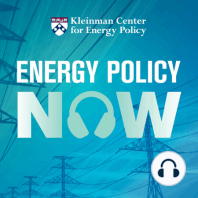29 min listen

200 Years of Energy History in 30 Minutes (And What We Might Learn for the Future)
200 Years of Energy History in 30 Minutes (And What We Might Learn for the Future)
ratings:
Length:
34 minutes
Released:
Mar 19, 2019
Format:
Podcast episode
Description
The current energy transition is fraught with economic and social implications, not to mention abundant political squabbles. An economist looks at the past 200 years of global energy history and finds that difficult transitions are nothing new.---The world faces an urgent need to transform energy systems toward cleaner, renewable fuels. Yet as challenging as the current energy transformation is, it’s worth noting that we’ve been through such momentous changes before. Over 250 years ago in England, coal fueled the start of the industrial revolution, opening the way to new economic growth and technological development that spread to many parts of the world. In this episode an economist explores the extent to which energy has come to underpin modern economies, and how energy resources of all types have become inseparable from our everyday lives. Jesús Fernández-Villaverdeis a professor of economics at the University of Pennsylvania. He is also author of an upcoming book on global economic history, with a major focus on the role of energy in economic development.
Released:
Mar 19, 2019
Format:
Podcast episode
Titles in the series (100)
How U.S. LNG is Changing the Global Gas Market by Energy Policy Now